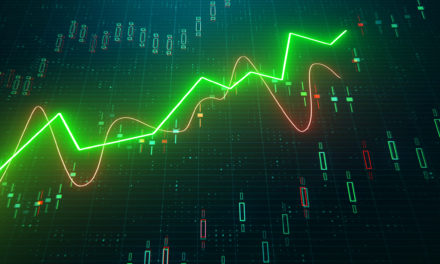
“When we own portions of outstanding businesses with outstanding managements, our favorite holding period is forever.”
— Warren Buffett
The wisdom of Warren Buffett reflects a value-based philosophy about investing that says investors are buying shares in a business, and encourages strategic thinking about investment time horizon. Before placing a buy order for a stock, a great question we can ask is whether we would still be comfortable making the investment if we couldn’t sell it for many years?
A “buy-and-hold” approach may call for a time horizon that spans a long period of time — maybe even lasting for a twenty year holding period. Suppose such a “buy-and-hold” investor had looked into buying shares of Hess Corp (NYSE: HES) back in 2004. Let’s take a look at how such an investment would have worked out for that buy-and-hold investor:
| Start date: | 12/31/2004 |
|
|||
| End date: | 12/30/2024 | ||||
| Start price/share: | $27.46 | ||||
| End price/share: | $130.71 | ||||
| Starting shares: | 364.17 | ||||
| Ending shares: | 465.69 | ||||
| Dividends reinvested/share: | $17.03 | ||||
| Total return: | 508.71% | ||||
| Average annual return: | 9.45% | ||||
| Starting investment: | $10,000.00 | ||||
| Ending investment: | $60,917.92 | ||||
As we can see, the twenty year investment result worked out well, with an annualized rate of return of 9.45%. This would have turned a $10K investment made 20 years ago into $60,917.92 today (as of 12/30/2024). On a total return basis, that’s a result of 508.71% (something to think about: how might HES shares perform over the next 20 years?). [These numbers were computed with the Dividend Channel DRIP Returns Calculator.]
Beyond share price change, another component of HES’s total return these past 20 years has been the payment by Hess Corp of $17.03/share in dividends to shareholders. Automatic reinvestment of dividends can be a wonderful way to compound returns, and for the above calculations we presume that dividends are reinvested into additional shares of stock. (For the purpose of these calcuations, the closing price on ex-date is used).
Based upon the most recent annualized dividend rate of 2/share, we calculate that HES has a current yield of approximately 1.53%. Another interesting datapoint we can examine is ‘yield on cost’ — in other words, we can express the current annualized dividend of 2 against the original $27.46/share purchase price. This works out to a yield on cost of 5.57%.
One more piece of investment wisdom to leave you with:
“The best stock to buy is the one you already own.” — Peter Lynch



